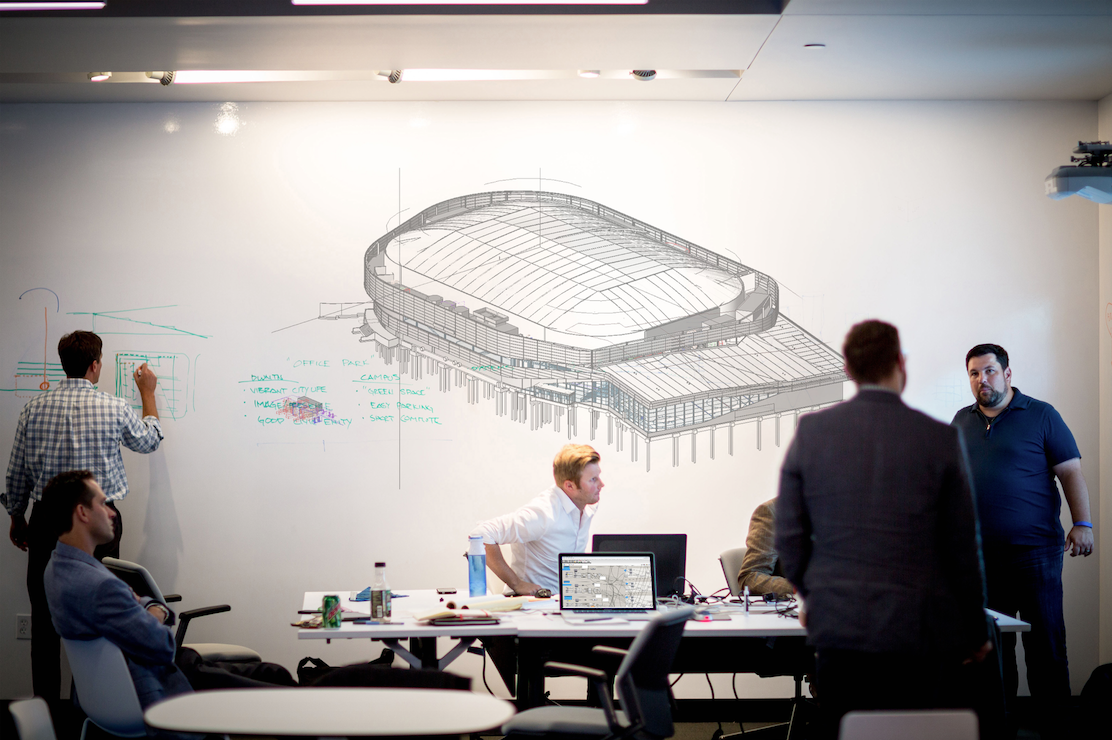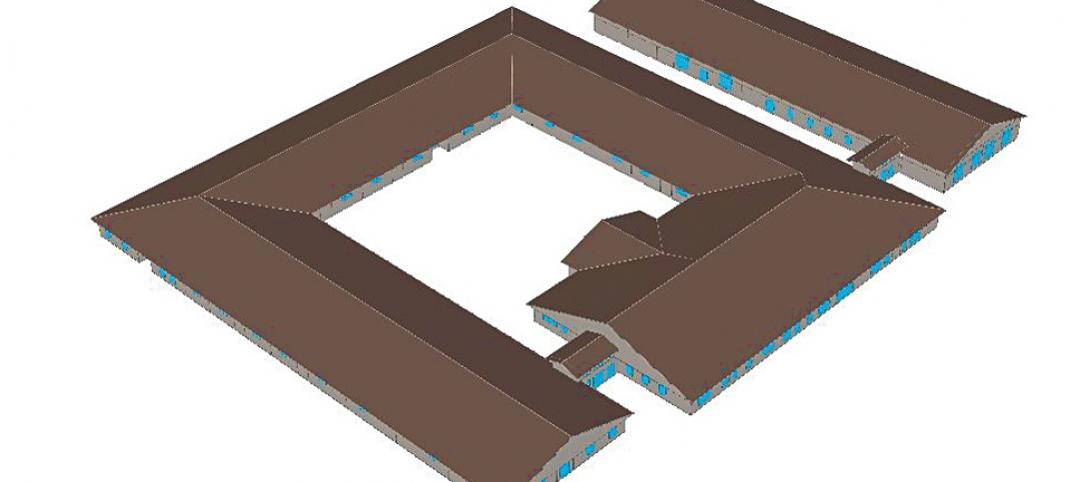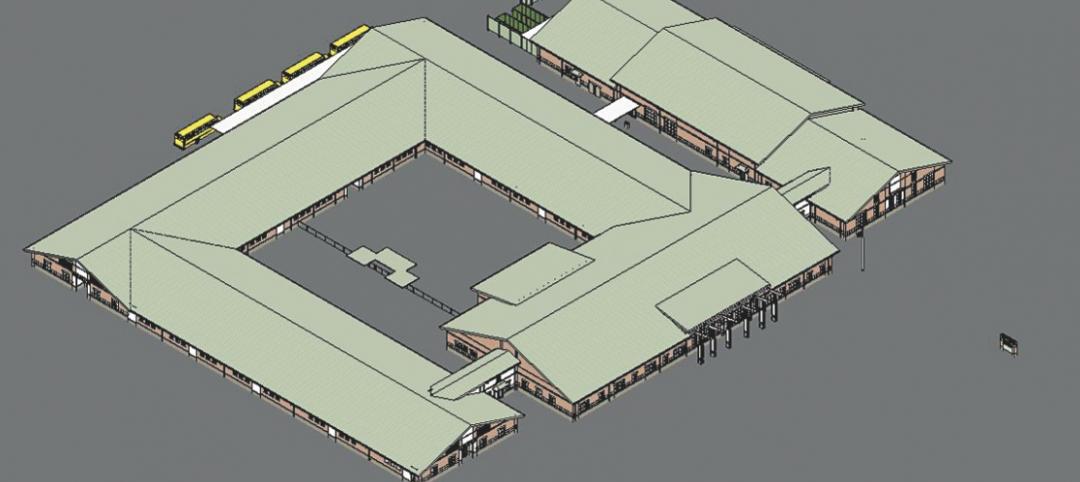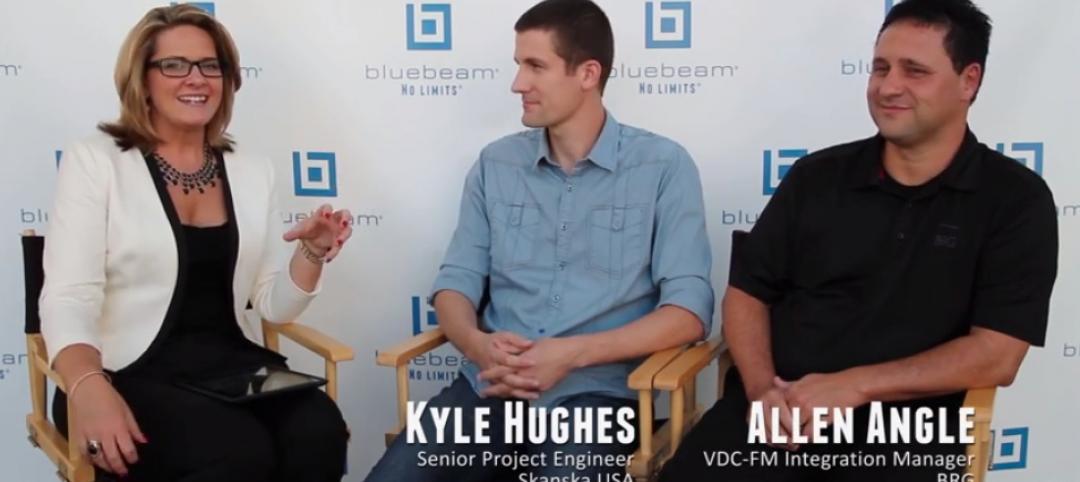A growing number of firms, including HDR, NBBJ, and Thornton Tomasetti, are investing in talent and training to advance their computational design capabilities. Here’s a roundup of the clever applications for CD:
1. Rapid prototyping. Why design a few prototypes when you can create thousands to find the ideal solution? Algorithm-based design processes allow teams to develop and explore dozens, even hundreds, of prototypes in a matter of hours—something that would be impossible using traditional methods.
2. Rapid iteration. Similarly, computational design is being used to more efficiently test and refine particular design schemes through rapid iteration—design, test, refine, repeat, in quick succession.
3. Data dashboards. Data can be an incredibly helpful resource for Building Teams, especially if it’s readily accessible and real time. Progressive firms are using CD methods to extract vital data from, for example, BIM models to feed custom Excel dashboards. Other firms are investing in more scalable platforms, such as Web-based data visualization, to gain insight into their data.
4. Automating repetitive duties. From mundane tasks like renaming files to complex projects like calculating the walking steps in a hospital floor plan, computational design tools can be used to automate the grunt work in the design process.
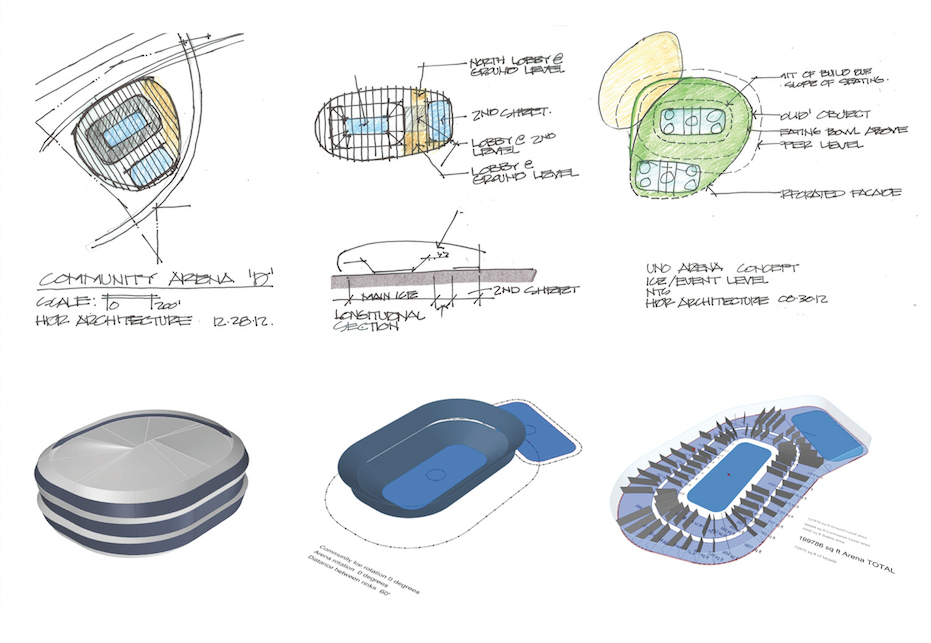 Using computational design tools, a team at HDR created an iterative process for building on-the-fly parametric models directly from sketches.
Using computational design tools, a team at HDR created an iterative process for building on-the-fly parametric models directly from sketches.
5. Creating custom plug-ins for existing software platforms. Need a tool that doesn’t exist on the market? No problem. Just code a solution. An extreme example is Thornton Tomasetti’s TTX database, which provides real-time read, write, and sync capabilities across six software tools: ETABS, Grasshopper, RAM Structural System, Revit, SAP 2000, and Tekla.
6. Evaluating the performance of early design concepts. Energy analysis, daylight modeling, even cost and schedule impacts—CD tools allow teams to make informed decisions much earlier in the design process.
For more on computational design, see BD+C's feature story, “Conquer computational design: 5 tips for starting your journey.”
Related Stories
| Aug 22, 2014
Spireworks app lets users control a piece of the New York skyline
Mark Domino, the son-in-law of developer Douglas Durst, has developed an app, called Spireworks, that allows anyone with a smartphone to change the color of a building's lights.
Sponsored | | Aug 21, 2014
Defining the measure of success when implementing new technologies
Sasha Reed and Chad Dorgan, McCarthy Building Cos.’s Vice President of Quality and Sustainability, discuss the keys to managing innovation within a large construction firm. SPONSORED CONTENT
| Aug 14, 2014
8 do's and don'ts for completing an HVAC life cycle cost assessment
There are many hurdles to overcome when completing a life cycle cost assessment. RMF Engineering’s Seth Spangler offers some words of advice regarding LCCAs.
| Aug 14, 2014
Life cycle cost analysis using energy modeling
A life cycle cost analysis helps a school district decide which HVAC system to use in $198 million worth of future building projects.
Sponsored | | Aug 8, 2014
Setting guidelines for construction PDF documents across the AEC industry
Sasha Reed interviews two members of the coalition responsible for creating new Guidelines for Construction PDF Documents. SPONSORED CONTENT
| Aug 4, 2014
BIM Giants: Firms enhance BIM/VDC with advanced collaboration tools [2014 Giants 300 Report]
Cloud-based data sharing, rapid iterative design, and cross-discipline collaboration are among the emerging trends in the BIM/VDC field, according to BD+C's 2014 Giants 300 Report.
| Aug 4, 2014
7 habits of highly effective digital enterprises
Transforming your firm into a “digital business” is particularly challenging because digital touches every function while also demanding the rapid development of new skills and investments. SPONSORED CONTENT
| Aug 4, 2014
What AEC executives can do to position their firms for success
Most AEC leadership teams are fastidious about tracking their hit rate–the number of proposals submitted minus the number of proposals won. Here are three alternatives for increasing that percentage. SPONSORED CONTENT
Sponsored | | Jul 30, 2014
How one small architecture firm improved cash flow using ArchiOffice
Foreman Seeley Fountain Architecture not only managed to survive the Great Recession, it has positioned itself to thrive in the economy’s recovery.
| Jul 16, 2014
Learning design fundamentals in the digital age – How to balance learning and technology
My colleague and I were once asked an insightful question by a Civil Engineering Professor that sparked an interesting conversation. He’d been told about our software by some of his students who had used it during their summer internship. SPONSORED CONTENT


